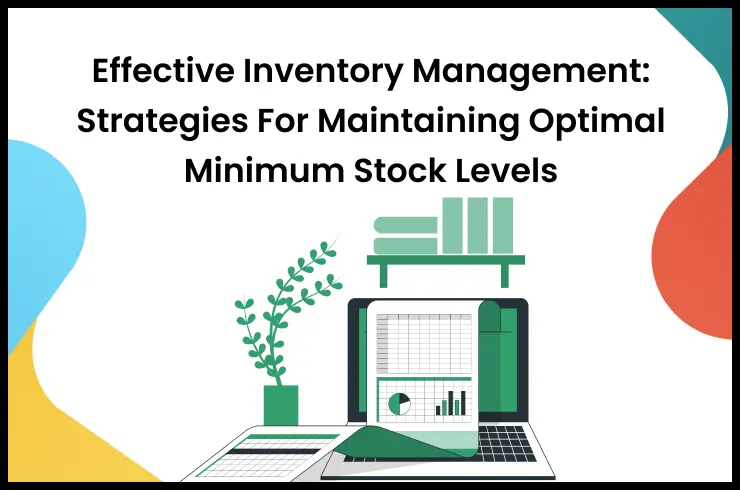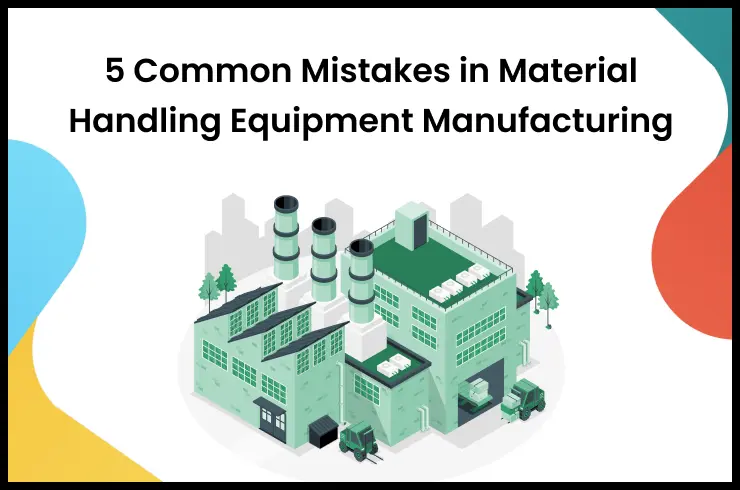Total Quality Management (TQM) is the rulebook that leads businesses toward perfection in their products and services.
In this blog post, we'll understand the concept of TQM, its principles, methodologies, and the impact it can have on a business’s operations.
Total Quality Management Definition (TQM)
The Total Quality Management definition is a simple one. Total Quality Management (TQM) is an overall and systematic way of looking after and improving the quality of:
- Goods
- Services
- Operations of a manufacturing business.
Total Quality Management lets continuous improvement be the priority. Workers at all levels have the freedom to help improve services. The basic rule of Total Quality Management is simple - quality shouldn't come later. Rather, it should become a main part of all processes, goods, and services throughout. It means constant progress with a great focus on client requirements. This is the most important total quality management meaning one needs to understand. It ultimately leads to:
- Customers happy with product quality
- Lower defects
- Long-term success in today's business environment.
How Does Total Quality Management (TQM) Work?
Total Quality Management considers all parts of the business process, not just the goods or the services. Total Quality Management works keeping in mind customers, employees, business name, and profit. Total Quality Management works on many key rules and practices:
-
Customer-Centric Approach: The first step in Total Quality Management is to understand the note down the client's needs, expectations, and choices. This is the step of Total Quality Management that is achievable through surveys, discussions, and market research.
-
Continuous Improvement: An important part of Total Quality Management is choosing to improve continuously. This improvement should cover all departments of the business. Continuous review, feedback, and changes for improvement of the production process and goods.
-
Worker Involvement: Total Quality Management is successful only when businesses understand the value of each employee. Workers play a big role in making sure of quality. It gives them the idea of participating at all business production levels. It also lets staff members be responsible for their jobs and make improvements.
-
Data-driven Decision Making: Analytics and data are necessary for Total Quality Management. Businesses gather and analyze data to make the best decisions, pinpoint areas for improvement, and track whether they are meeting their quality goals. This process increases the importance of total quality management, further.
-
Process Optimization: Total Quality Management strongly focuses on simplifying internal processes to reduce waste, and defective materials and promote productivity. These goals become reachable using business strategies like Six Sigma and Lean
-
Supplier Relationships: Total Quality Management ideas are very important for suppliers in the quality chain. Total Quality Management extends its ideas to them. Strong working connections with suppliers help to guarantee the good quality of raw materials.
Read Also Production Externality: Definition, Measuring, and Examples
Total Quality Management (TQM) Examples
There are quite a few total quality management examples worldwide. They include:
1. Toyota:
Toyota was one of the first to apply Total Quality Management. This famous manufacturer has continuously produced quality vehicles. They have paid attention to continuous improvement, employee interaction, and just-in-time manufacturing.
2. McDonalds:
McDonalds is probably the most famous fast-food chain in the world. It applies Total Quality Management rules to maintain the same level of quality across its international operations. McDonald's success depends on:
- Standard internal processes
- Quality assurance systems
- Customer-focused outlook.
3. Ford:
Ford's commitment to Total Quality Management is reflected in its slogan, "Quality is Job 1." This car manufacturing giant uses Total Quality Management practices to:
- Increase customer happiness
- Reduce defects
- Improve product quality.
These examples show how Total Quality Management is relevant to a variety of industries and how it can raise the quality of goods and services. You can find a helpful Total Quality Management PDF online to talk about these businesses.
Read Also What Is Prime Cost?
Principles of Total Quality Management (TQM)
The Total Quality Management principles remain the same throughout the world. These serve as the foundation for its use.
-
Customer Focus: The ultimate goal of Total Quality Management is to meet client/customer expectations. The choices and feedback of the customer make up a big part of decision-making.
-
Leadership Commitment: Total Quality Management requires strong leadership quality and active interaction with clients/customers. Leaders should lead by example and supply the necessary resources for adopting Total Quality Management.
-
Strong Workforce: Workers who feel stronger are more likely to take responsibility for their jobs and contribute to their progress. Total Quality Management promotes participation and training at all levels.
-
Continuous Improvement: The Total Quality Management process never ends. To be competitive, businesses must constantly look for ways to improve their operations and goods.
-
Process-Centric Approach: Total Quality Management simplifies processes to cut down on waste, faults, and lack of experience.
-
Data-Driven Decision Making: Metrics and data are important for examining and increasing quality. Gathering and analyzing data is necessary for businesses looking to make wise decisions.
-
Supplier Relationships: To guarantee the continuous flow of good quality raw materials and components, healthy working ties with suppliers are important.
Read Also Producer Surplus: Definition, Formula, and Example
Benefits of Total Quality Management (TQM)
Total Quality Management rarely has any negatives. Businesses can make a total quality management ppt on the following points if they ever need to convince everyone to adopt this process.
Implementing TQM can result in a wide range of benefits for business, including:
-
Product Quality Improvement: Total Quality Management helps reduce defects and mistakes, resulting in higher-quality goods or services.
-
Customer Satisfaction Increase: Businesses can increase customer happiness and loyalty by meeting customer needs and expectations.
-
Cost Decrease: Improving processes and reducing waste can lower costs and increase profit.
-
Better Worker Morale: Increasing employee strength can raise spirits and motivation, increasing output.
-
Competitive Advantage: Delivering quality and customer-centred services through Total Quality Management can give businesses a competitive edge.
-
Market Expansion: Customers who are happy with a business are more likely to recommend it to others, increasing its market reach.
-
Sustainability: Total Quality Management practices reduce a business's harmful effects (if any) on the environment and increase long-term viability.
Total Quality Management: The Key to Becoming a Leader
Total Quality Management (TQM) is a practice that is an important part of any business culture and management. Putting quality first and welcoming continuous improvement ideas lies at the centre of Total Quality Management.
TranZact automates important checks and combines basic operations, including material planning, production, and inventory management. It also provides complete goods quality testing and digital audits to improve quality management throughout the business.
FAQs:
1. What is Total Quality Management? (TQM)?
Total Quality Management focuses on the inclusion of quality into all parts of operations within a business. It takes a detailed approach to managing business quality standards and processes. Total Quality Management is a culture shift towards constant quality improvement rather than only a method.
2. How does Total Quality Management work?
Total Quality Management identifies and addresses customer demands, then uses Six Sigma and Lean to improve processes continuously. Worker involvement builds a culture of excellence and accountability. 3. Can Total Quality Management find its application in any industry? Many industries, including manufacturing, services, and healthcare use TQM. This allows businesses to meet customer expectations and deliver high-quality products continuously.
4. What are the Total Management Quality Principles?
The Total Quality Management principles focus on:
- A customer-centric approach
- Committed leadership
- Increasing worker involvement
- Continuous process improvement
- Data-driven decision-making
Developing healthy relationships with cooperative suppliers.
These rules act as the basis of Total Quality Management's success in improving quality
5. What are the benefits of implementing Total Quality Management?
There are multiple benefits to Total Quality Management. They include:
- Improvement in product quality
- Increase in customer satisfaction
- Cost decrease
- More detailing in processes
- Better worker happiness and productivity,
- Competitive advantages in the market
- Better market reach
- Achieve sustainable practices6. Is Total Quality Management a one-time initiative, or is it ongoing?
Total Quality Management is a continuous process. It calls for a life-long dedication to customer satisfaction and improvement. It is a cultural habit within a business. It aims at quality improvement. It is not a one-time initiative.

















